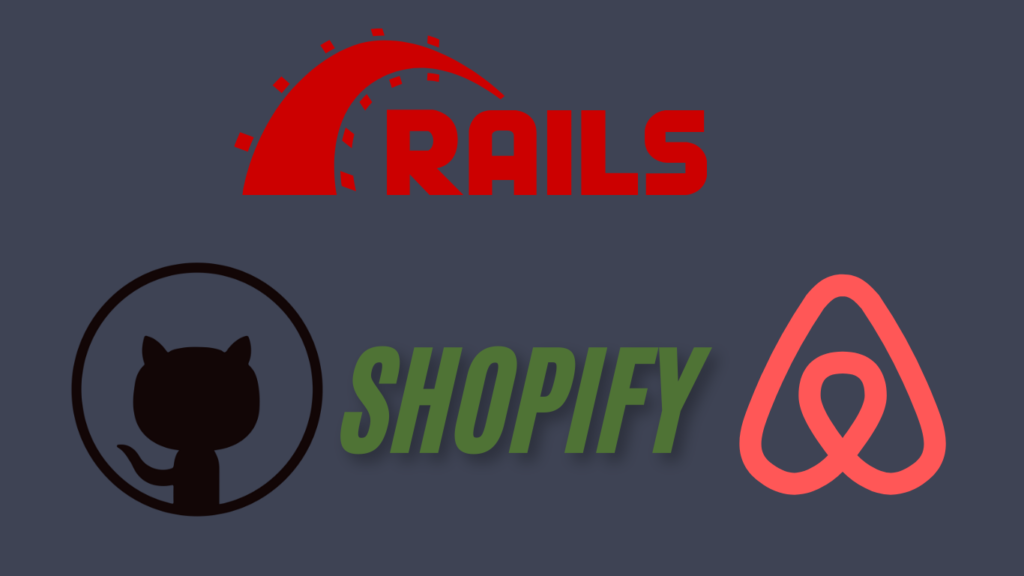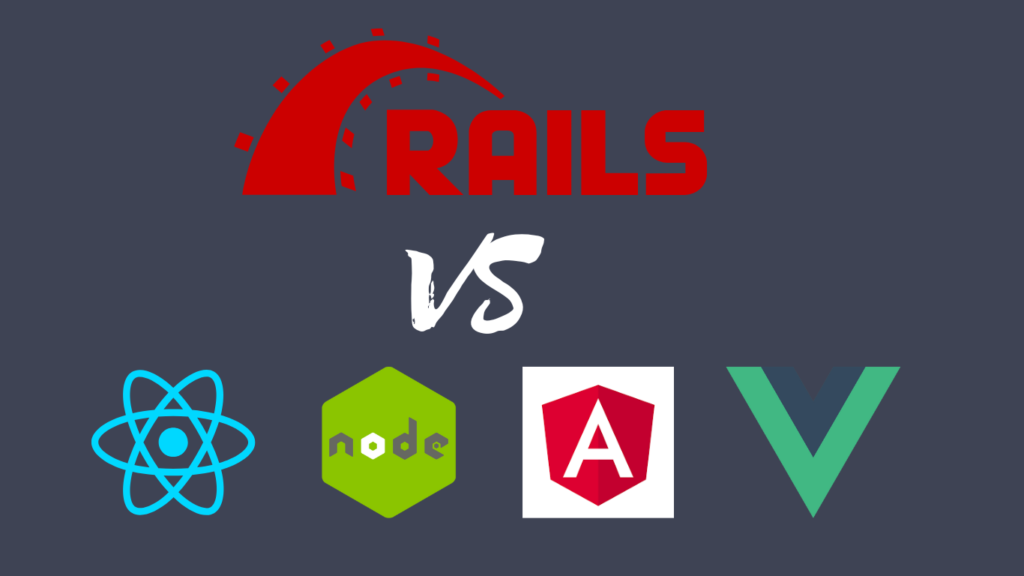
In the ever-changing world of software development, some frameworks gain rapid popularity and then fade away. Ruby on Rails, however, is one of those few that has maintained a stronghold in the web development landscape for years. But with the surge of newer technologies, questions arise: Is Ruby on Rails still relevant? Is it worth learning in 2025? Let’s dive into these questions, exploring the framework’s history, its current demand, and whether it’s still a good career choice today.
The Rise and Sustained Popularity of Ruby on Rails
Ruby on Rails (often simply called “Rails”) was created in 2004 by David Heinemeier Hansson (DHH) and rapidly became a go-to choice for web developers. Known for its “convention over configuration” approach, Rails simplified development by minimizing repetitive tasks. It emphasized quick, structured web application creation and streamlined processes that made developers’ lives easier.
Over time, Rails gained a devoted community, and it became especially popular for building startups and web applications that needed rapid development cycles. Major companies like GitHub, Shopify, Airbnb, and Basecamp (where Rails was first developed) adopted the framework, proving its power and reliability. This propelled its popularity in the late 2000s and early 2010s, and Rails seemed unstoppable.
But, where does Rails stand now? A quick look at developer platforms like Stack Overflow shows that interest has slowed slightly but remains steady. Each year, thousands of developers continue to engage in Ruby on Rails discussions, troubleshooting, and sharing knowledge on forums. Rails has had its ups and downs, but it has proven to be resilient and still holds a solid place in web development.
Is Ruby on Rails in High Demand or Losing Popularity?
Ruby on Rails has indeed faced increased competition from frameworks like Django (Python), Laravel (PHP), and especially JavaScript-based frameworks like React, Node.js, and Vue.js. JavaScript, with its “full-stack” capabilities and the recent hype around frameworks like Next.js, has naturally drawn a portion of the developer community. This might make it seem like Rails is losing popularity, but it’s more of a shift than a decline. Rails continues to be a strong framework, albeit for specific use cases and types of applications.
A key point to consider is that Ruby on Rails is very niche-focused today. Many financial tech (fintech) companies, e-commerce platforms, and even healthcare systems still prefer Rails because of its strong backend capabilities and ease of building complex, secure applications.
Ruby on Rails on Stack Overflow
Stack Overflow serves as a treasure trove of information, with millions of questions and answers about countless programming languages, frameworks, and tools. Ruby on Rails has consistently been a major part of the platform’s ecosystem. But what led to its rise on Stack Overflow?
A Look at Stack Overflow Data
According to historical data from Stack Overflow, Ruby on Rails hit its peak popularity in the early 2010s, when web development was booming. Developers flocked to the platform with questions about Rails because it was one of the most widely used web frameworks. Over the years, the number of questions on Rails might have leveled off, but there’s still a strong, active Rails community on Stack Overflow.
What This Means for Rails Today
The steady number of questions about Rails indicates a framework that has maintained relevance. While other frameworks may come and go, the Rails community continues to engage, troubleshoot, and innovate on Stack Overflow. This enduring popularity can be attributed to several key factors:
- Framework Maturity: Rails has a wealth of documentation, tools, and best practices established over its 20-year history.
- Experienced Developers: Many seasoned developers still rely on Rails, sharing their insights and experiences on Stack Overflow.
- Supportive Community: Even as other frameworks grow, Rails’ community actively helps newer developers, keeping the platform buzzing with knowledge-sharing.
Stack Overflow Trends and Developer Community Insights
According to Stack Overflow’s developer surveys, while the number of questions tagged “Ruby on Rails” may not be growing as fast as for JavaScript or Python frameworks, the community remains active and vibrant. A significant number of developers continue to contribute, offering solutions, which point to a dedicated user base.
The Evolution of Rails Popularity on Stack Overflow Over the Years
Let’s break down the three major phases in the lifecycle of Rails’ popularity on Stack Overflow.
- Early 2000s – Rise of Rails: Ruby on Rails was groundbreaking for its simplicity, agility, and “Rails magic.” Developers adopted it in droves, and soon, Rails questions flooded Stack Overflow as more people sought to understand its structure and solve challenges.
- 2010s – Height of Rails Popularity: By the 2010s, Rails was a top choice for startups, tech companies, and developers. Major platforms like GitHub and Shopify were built on Rails, which drew even more developers to Stack Overflow seeking insights. This era cemented Rails as a significant presence in web development discussions.
- 2020s – Stabilization and Niche: While newer frameworks like React, Vue, and Angular began gaining traction, Rails settled into a stable niche. It remained a solid choice for specific types of projects—especially those requiring quick prototyping, startups, and MVP (Minimum Viable Product) development. Rails no longer leads the pack in terms of volume but retains a loyal, active user base on Stack Overflow.
Is Ruby on Rails Worth Learning in 2025?
The answer to this depends on your career goals and the kind of work you’re interested in. If you’re aiming to work in high-growth startups, particularly in the e-commerce or SaaS space, Rails is still a valuable skill. Many startups choose Rails due to its ability to get applications running quickly and efficiently. This speed-to-market capability is an advantage in a fast-paced startup environment.
Advantages of Learning Ruby on Rails:
- Rapid Development: Rails is known for its speed in building applications.
- Community and Resources: The Rails community is supportive and has extensive resources for learning.
- Versatility for Startups: Rails remains popular with early-stage startups, especially for creating MVPs (Minimum Viable Products).
That said, JavaScript frameworks are highly in-demand and might offer more opportunities if you’re just entering the tech field. However, learning Rails still adds valuable skills to your toolkit.
Is Ruby on Rails a Good Career in 2025?
A career in Ruby on Rails can still be lucrative, especially if you’re working for companies that actively use the framework. Rails developers tend to have a specialized skill set that’s in demand in specific industries, including finance, healthcare, e-commerce, and educational technology.
Consider the Following:
- Higher Stability: Many established companies and institutions rely on Rails for their long-standing applications. They need experienced developers to maintain and upgrade these applications.
- Competitive Salaries: Rails developers often command competitive salaries, particularly in regions where Rails is a core technology in companies.
The framework may not be as “trendy” as React or Node.js, but having Rails expertise can still open doors in companies where Rails remains central to their stack. This niche demand means Rails developers may face less competition for these roles, making it a wise career choice for those willing to specialize.
Does Ruby on Rails Pay Well?
Yes, salaries for Rails developers are generally high, often in line with or slightly above other backend roles. In the United States, Rails developers can expect average annual salaries between $90,000 and $130,000, depending on experience and location. In tech hubs like San Francisco, salaries can be even higher.
Why Rails Developers Earn Well:
- Demand in Specific Industries: E-commerce, fintech, and SaaS companies often use Rails, and skilled Rails developers are needed to maintain and expand these applications.
- Less Competition: With fewer new developers learning Rails, experienced Rails developers remain in demand.
While other technologies might have more entry-level roles, Rails offers high-paying roles that reward expertise and depth of knowledge.
Are Companies Still Using Ruby on Rails?
Absolutely! Many large, well-established companies as well as newer startups continue to rely on Rails. Popular names include:

- GitHub: One of the largest code-hosting platforms still uses Rails.
- Shopify: A leading e-commerce platform.
- Basecamp: Where Rails originated, still uses it for their project management software.
- Airbnb and Crunchbase: Parts of their tech stack still rely on Rails, though they’ve adopted additional technologies.
Pros and Cons of Ruby on Rails in 2025
Let’s summarize the pros and cons of Rails as we look ahead to 2025.
Pros:
- Established and Stable: Rails has been around for a while, with a mature ecosystem.
- Productivity: The framework’s focus on “convention over configuration” makes it fast to develop with.
- Community Support: A dedicated community that produces plenty of libraries, gems, and tools.
Cons:
- Not as Trendy: Compared to JavaScript frameworks, Rails is considered “less modern.”
- Specialized Use: Rails is no longer the go-to for all new web applications, and it’s best suited for specific industries.
Challenges Ruby on Rails Faces
It’s not all smooth sailing for Rails. Here are some challenges that could influence its future on Stack Overflow and in the industry:
- Competition from New Frameworks: With JavaScript frameworks like React, Vue, and Angular dominating, Rails may seem like an older choice. Newer options appeal to developers seeking front-end flexibility and extensive libraries.
- Performance and Scalability: Some companies outgrow Rails as they scale, opting for other solutions better suited for high-performance needs. This can impact Rails’ attractiveness for newer developers.
- Evolving Developer Preferences: Today’s developers lean towards JavaScript-based full-stack frameworks like MERN (MongoDB, Express, React, Node). Rails, while still relevant, must compete with these preferences.
Where is Ruby on Rails Headed?
The future of Rails isn’t set in stone, but here’s what could shape its path forward:
- Focus on Niche Markets: Rails might not be the trendiest framework, but it’s unmatched in its niche markets—like startups needing quick MVPs or small businesses creating straightforward web applications.
- New Versions and Upgrades: The Rails core team is constantly working on updates to improve performance and security. Rails 7 introduced Hotwire for rich, responsive user experiences without complex JavaScript frameworks, which could spark new interest in Rails.
- The Rise of Hybrid Solutions: Rails is flexible enough to work with JavaScript frameworks, meaning you can have a Rails backend with a React frontend. This allows Rails to remain part of modern web stacks.
- Continued Community Support: The Rails community shows no signs of slowing down. Even if other frameworks are popular, Rails developers are dedicated to helping each other, contributing to Stack Overflow, and maintaining open-source projects.
Why Rails Will Likely Remain a Part of the Developer Ecosystem
While Ruby on Rails may not have the flashiness of new JavaScript frameworks, it has carved out a stable place in the world of web development. Rails has a charm and simplicity that remains appealing for many developers. Here’s why it’ll probably stay relevant on Stack Overflow:
- Simplicity for Beginners: New developers find Rails an easy entry point into web development, and Stack Overflow offers plenty of resources to get them started.
- Versatile for Prototyping: Rails allows rapid application development, making it a solid choice for prototyping.
- Mature Community: Experienced Rails developers are committed to answering questions, sharing insights, and improving the framework. This community support creates a robust ecosystem that sustains Rails’ popularity.
JavaScript frameworks offer flexibility and modern frontend experiences, Rails brings advantages that are hard to beat for specific applications, particularly in areas like FinTech, SaaS, and enterprise applications. Let’s look at the scenarios where Rails can be a better fit than JS frameworks.

FinTech Applications: Reliability and Security at Scale
When it comes to financial technology (FinTech) applications, Ruby on Rails shines. FinTech apps require stringent security measures, data integrity, and regulatory compliance to protect sensitive data and transactions. Rails is known for its built-in security features, which make it an ideal choice for applications where security is a top priority.
Why Rails Over JavaScript Frameworks in FinTech:
- Mature Security Standards: Rails comes with a suite of security protections out of the box, including SQL injection prevention, cross-site scripting (XSS) protection, and cross-site request forgery (CSRF) protection. This baseline security makes Rails a safer choice for FinTech applications, where data breaches are costly.
- Stable and Reliable for Data Management: Rails’ Active Record ORM (Object Relational Mapping) provides a stable and predictable way to handle complex database relationships, making it easier to manage sensitive financial data.
- Built-In Testing and Validation: Rails has a robust ecosystem for testing, which is critical in FinTech. Ensuring that each feature functions as intended and passes all security requirements is crucial in this sector, and Rails’ extensive testing libraries support this.
- Rapid Development for MVPs: Rails allows FinTech startups to get products to market quickly, testing ideas while maintaining compliance. This speed and security balance can make Rails ideal for MVPs in the FinTech space.
Examples of Rails in FinTech: Companies like Square and Coinbase initially used Rails for their platforms, largely due to its secure, streamlined development process.
SaaS (Software as a Service) Applications: Speed and Flexibility
Rails has long been a favorite for SaaS products, thanks to its ability to quickly build robust, feature-rich applications. In SaaS, where rapid iteration and deployment are essential, Rails stands out with its fast development cycle, simple code management, and powerful libraries.
Why Rails Over JavaScript Frameworks in SaaS Development:
- Rapid Prototyping and Feature Rollout: Rails is built for speed, with conventions that allow developers to build and iterate quickly. This is especially useful for SaaS startups that need to launch new features rapidly to stay competitive.
- Multi-Tenant Support: SaaS applications often support multiple users or clients on a single instance. Rails has tools and libraries, like Apartment, which simplify multi-tenancy, making it easy to handle multiple user bases without creating separate instances.
- Easy API Development: Rails is well-suited for creating APIs, which is essential for SaaS products that need to interact with third-party services or mobile applications. Rails’ RESTful design patterns make it straightforward to build and manage APIs.
- Developer-Friendly Ecosystem: The Rails community provides a vast selection of gems (libraries), covering everything from authentication (like Devise) to payment integration (like Stripe and Braintree), giving SaaS developers the flexibility to add features quickly.
Examples of Rails in SaaS: Some of the most well-known SaaS platforms, such as Shopify, Basecamp, and Zendesk, are powered by Rails, demonstrating its effectiveness for complex, scalable SaaS applications.
Enterprise Applications: Stability and Maintainability
In the enterprise space, applications need to be stable, scalable, and easily maintainable. Enterprises often prefer tried-and-true solutions that prioritize long-term stability over trendiness. Rails, with its robust framework and strong coding conventions, provides a stable environment suited to large-scale, high-traffic applications.
Why Rails Over JavaScript Frameworks in Enterprise Development:
- Consistency and Code Readability: Rails emphasizes “convention over configuration,” which encourages consistency across projects. This predictability and uniformity can be a huge advantage in enterprise settings where large teams work on the same codebase.
- Scalability with Proven Techniques: While JavaScript frameworks can also scale, Rails has well-established patterns for scaling, especially with PostgreSQL databases, caching strategies, and background job processing using gems like Sidekiq. Enterprises can rely on these proven techniques to manage high traffic and data loads.
- Legacy Code Management: Enterprises often have legacy code to maintain, and Rails is easier to update and maintain compared to some JS frameworks that are more tightly coupled to the frontend. With Rails, backend improvements can happen without disrupting the frontend experience.
- Solid Ecosystem of Tools and Gems: The Rails ecosystem has reliable tools for monitoring, error tracking, and testing. These tools contribute to the framework’s resilience, which is critical for enterprise applications that require high uptime and minimal disruption.
E-Commerce Platforms: Customizability and Fast Development
When it comes to e-commerce applications, Rails is an attractive option for creating a secure, customizable platform. JavaScript frameworks like Next.js are often chosen for their ability to build dynamic storefronts, but Rails can power the backend reliably, especially for managing products, customers, and transactions.
Why Rails Over JavaScript Frameworks in E-Commerce:
- Powerful Backend for Transactional Systems: Rails’ architecture is well-suited for handling complex transactional systems, which is essential for e-commerce. Active Record, Rails’ ORM, allows developers to handle databases efficiently, making it easy to track orders, manage inventory, and handle payment processing.
- Security for Payment Integration: E-commerce platforms deal with sensitive information, so security is paramount. Rails offers built-in tools and best practices that reduce vulnerabilities, and it has a large collection of gems for payment gateways like Stripe, PayPal, and Braintree.
- Quick Time to Market: Rails’ simplicity and efficiency in development allow e-commerce businesses to get their products to market faster, reducing costs and allowing for rapid prototyping and feature updates.
- Customizability and Personalization: Rails’ structure is highly customizable, allowing developers to build unique features and personalized user experiences, which are increasingly important in e-commerce.
Internal Business Tools and Administrative Panels
For companies looking to build internal tools, administrative dashboards, or custom CRMs, Rails is often the preferred choice. Internal tools typically require a robust backend, rapid development, and ease of maintenance rather than a trendy frontend experience.
Why Rails Over JavaScript Frameworks for Internal Tools:
- Fast Prototyping for Internal Use: Rails allows developers to quickly spin up an MVP and iterate based on team feedback, which is ideal for internal applications where speed and functionality take priority.
- Built-In Admin Libraries: Rails has several admin libraries, like ActiveAdmin and RailsAdmin, that enable the rapid creation of user-friendly dashboards, simplifying CRUD operations (Create, Read, Update, Delete) on data.
- Data Integrity and Reliable Storage: Rails works seamlessly with relational databases like PostgreSQL and MySQL, ensuring that internal data is secure and well-organized, which is essential for employee management, performance tracking, and business analytics.
- Ease of Maintenance: Rails’ clear conventions and extensive documentation make it easy for teams to maintain internal tools and adapt them to changing needs, which is essential for non-customer-facing applications that may need constant updates.
Conclusion: Is Ruby on Rails Worth It in 2025?
The Rails ecosystem may have matured, but it’s still far from obsolete. For new developers, learning Rails could be a strategic decision if they’re interested in specific fields like fintech, SaaS, and enterprise applications. The demand for Rails developers, while niche, is stable, and Rails skills can lead to high-paying jobs in companies that rely on it.
In summary:
- Ruby on Rails isn’t going anywhere. It remains a resilient, stable framework with a specialized demand.
- If you’re considering Rails, weigh its strengths in productivity and community support against the broader appeal of JavaScript frameworks.
- Rails remains a solid, high-paying career path for those willing to specialize, especially in startups and industries where Rails is a preferred choice.
Ruby on Rails might no longer be the “new kid on the block,” but it’s a trusted, efficient choice for web applications that prioritize reliability. So, if you’re wondering if Rails is worth learning in 2025—the answer is yes, but it’s a commitment to depth and specialization.









